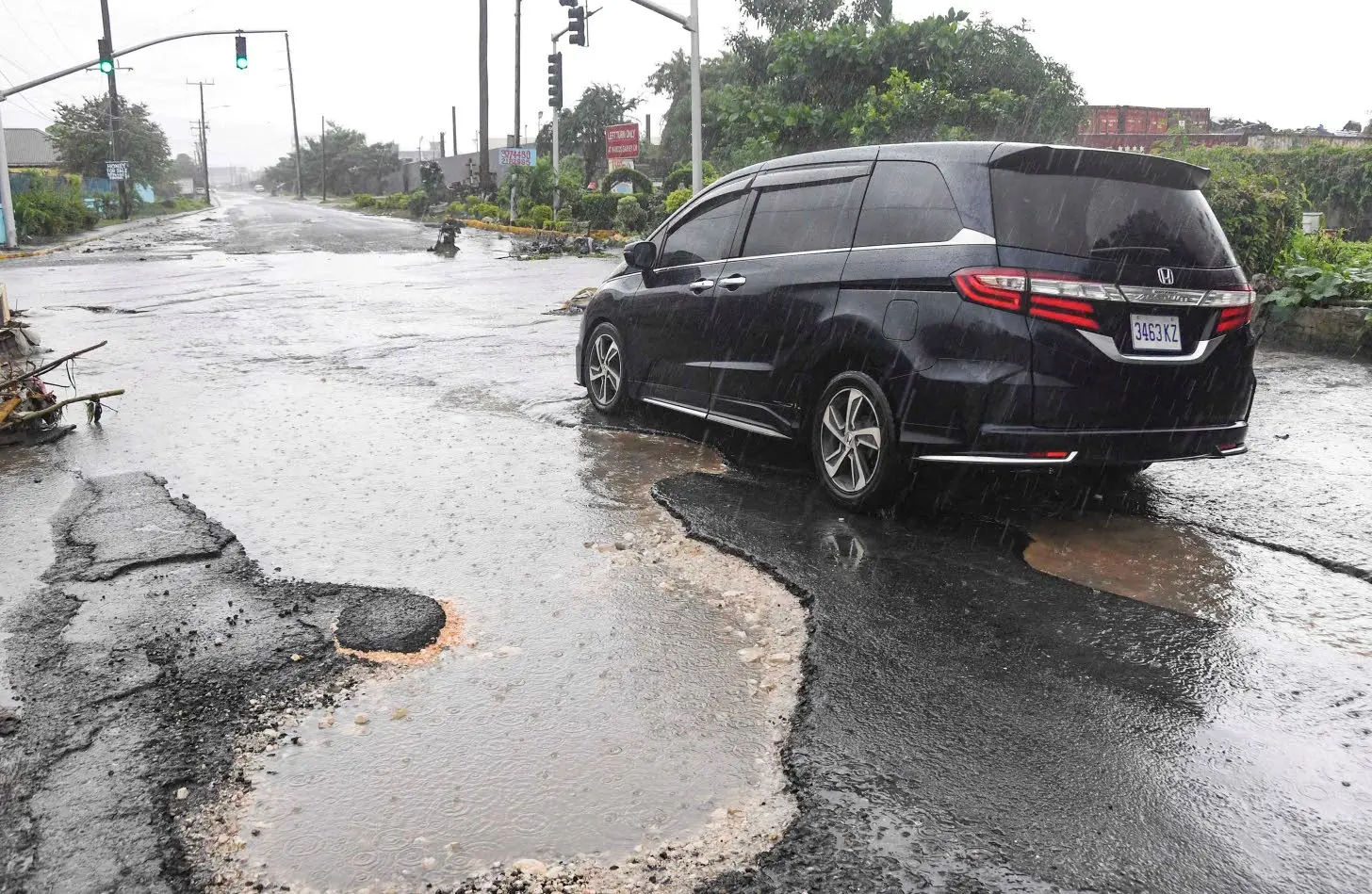
WEATHERING THE STORM
Jamaican businesses seek answers as climate change disrupt operations
Local businesses are faced with mounting operational challenges as erratic weather patterns drive up costs, hinder logistics, and strain productivity across sectors.
In a year marked by increased storms and persistent rain, industry leaders and business groups have raised alarms about the toll on productivity, logistics, and infrastructure, and have intensified calls for resilience measures and climate adaptation to minimise disruptions to business activities.
“It’s far more than issues like people staying home when there is a storm threat, because the safety of staff is our priority even though it disrupts production. We have major challenges with things like the road conditions and the challenges of getting deliveries into some of these communities where now there are no roads or road is in a terrible state,” William Mahfood, chairman of Wisynco, one of Jamaica’s leading manufacturers, told the Jamaica Observer in referencing the impact of recurrent rain and flooding. “The congestion on the roads has been extreme, adding significant expenses to our business.”
Since Hurricane Beryl struck in July, Jamaica has continued to experience severe weather events. The Atlantic hurricane season, which peaks between August and October, has intensified these issues, with Tropical Storm Rafael prompting another storm watch just this week.
As a result numerous companies temporarily closed operations, while others, like Wisynco, have had to arrange special transport for essential staff to keep critical functions running. Despite these efforts, he acknowledged that operating below full capacity amid rising demand is not sustainable.
“Our doors remained open, but only with minimal staff focused on production and logistics,” Mahfood shared.
Still, the broader impact on the economic is significant.
Metry Seaga, president of the Private Sector Organisation of Jamaica, told the BusinessWeek that constant disruptions from extreme weather are making it difficult for businesses to maintain operational consistency.
“There’s no doubt this weather is affecting productivity, people get out of their work rhythm; but there is nothing that we can really do about that part because staff safety is our priority ” he said.
But the ongoing disruptions are pushing business leaders to consider more robust resilience and continuity strategies.
Wayne Chen, president of the Jamaica Employers Federation, emphasised that every crisis brings an opportunity.
He is encouraging more private companies to take more seriously resilience planning, including cloud-based data storage and contingency staffing arrangements. However, he stressed that resilient infrastructure is foundational to any long-term strategy.
“We need dependable roads, reliable telecom services, and a stable power grid,” he asserted, while calling for public investment in critical infrastructure to enable businesses to operate sustainably amid climate uncertainties.
As the challenges intensify, digital transformation is emerging as a crucial strategy for maintaining productivity. Automation and remote work capabilities are becoming more common, allowing businesses to mitigate some losses during severe weather while safeguarding employees.
“Automation is part of the solution, but it won’t replace human workers,” Seaga reasoned, adding that for these solutions to be fully effective, improvements to Jamaica’s digital infrastructure are essential.
Energy independence is another key area Chen wants business leaders and the Government to focus on.
“With global supply chains increasingly vulnerable, Jamaica must consider the potential impact of disruptions,” he noted. “Transitioning towards renewable energy and energy independence not only mitigates this risk but also creates new opportunities for growth and long-term employment.”
Chen is urging leaders to consider resilience and adaptability from both a national and business perspective, asking, “How do we make our businesses more resilient and adaptable? How do we make our countries more resilient and adaptable?”
He added that Jamaica’s vulnerability is compounded by the economy’s heavy reliance on tourism and trade. “We are highly susceptible to climate shocks, and that dependency increases our exposure,” Chen said.




























